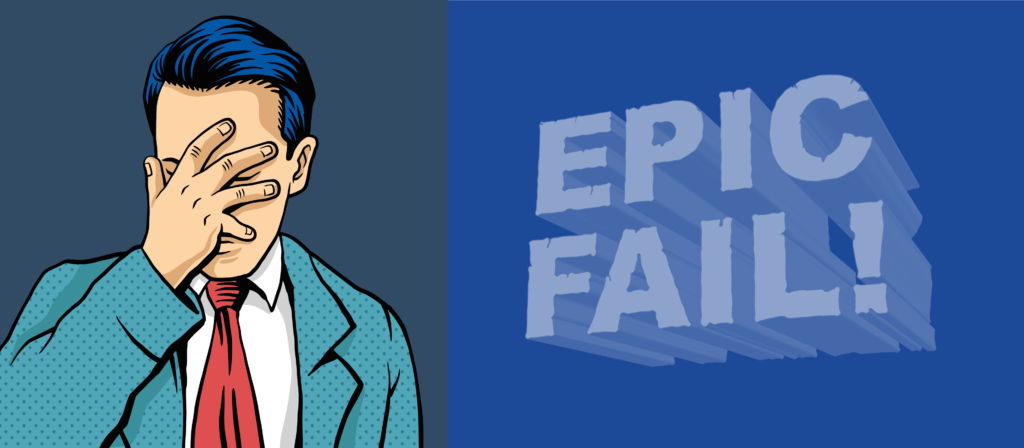
What’s your biggest fear as a radio professional, whether you’re on the air, selling time, running the cluster, or you’re the CEO?
Most of us have a fear of failure.
And it seems like as the stakes have gotten higher and the margins have gotten tighter, that fear is widespread and palpable. This is a smaller industry than it was a decade ago. Or two decades ago. There are fewer jobs, and less room for error.
In order to avoid a disaster – especially an epic fail – people will go to great lengths to play it safe. Oftentimes, the Hippocratic Oath that doctors take is invoked in radio strategy sessions:
“Do no harm” is the oft-quoted phrase. I’ve said it myself.
But by not taking risks, are we simply delaying the inevitable? That is, doing little to capture the zeitgeist, much less the listener’s attention. Perhaps you’ve noticed it. Radio rarely makes headlines anymore. Yes, disaster aid and charitable fundraising will earn you coverage. But how often does radio generate “earned media” for its formats, its personalities, and its trendsetting? Not often enough.
That’s why I like to track epic fails, especially from big-name companies and global corporations – the types of enterprises worth millions and billions, that surely can’t afford to screw up.
But screw up they do. And lots of the time, it’s a public, highly visible miscalculation, a new product fail, or a bet that not only fails to pay off, but costs the company a fortune.
You don’t have to look hard to find them.
Perhaps one of the most visible occurred during the opening weeks and months of COVID. It had all the ingredients for success; media genius, gobs of money, and an amazing opportunity when the entire world found itself holed up in their homes with nothing much to do.
When you’ve got business icons like Jeffrey Katzenberg and Meg Whitman and $1.7 billion in investment equity, it’s hard to imagine the epic fail that was Quibi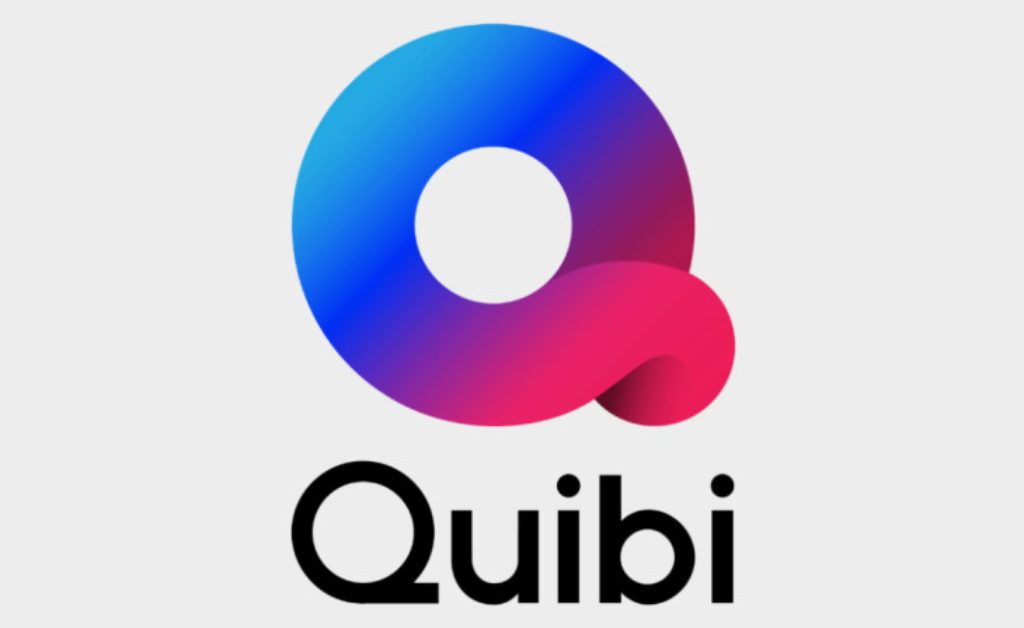 , a bite-sized video platform that lasted just six months.
, a bite-sized video platform that lasted just six months.
Virtually no one subscribed to Quibi, while at the same time TikTok took off. As Katzenberg explained to NBC News: “I think Meg and I believe in owning our miss, simply blaming it on Covid is not fair and not something either of us want to do.”
And here’s the thing…
Katzenberg and Whitman will be back, hopefully chastened by the Quibi debacle, smarter and better prepared for their next venture. That’s the way it works in technology, in radio, and in pretty much every discipline throughout history. It’s certainly part of the game in the world of sports.
One of the greatest baseball sluggers of all time – the guy known as “Mr. October” for his clutch hitting in the World Series – said it best:
“Home run hitters strike out a lot.” – Reggie Jackson
And lately, there have been some pretty major fails by otherwise massively successful companies. Get your schadenfreude ready for these three stories of big companies screwing up royally:
Facebook’s podcasting venture – One year ago, the Godzilla of social media debuted a series of audio tools to support podcasts. After all, they have more content creators than any other social site and podcasting is a white hot space.
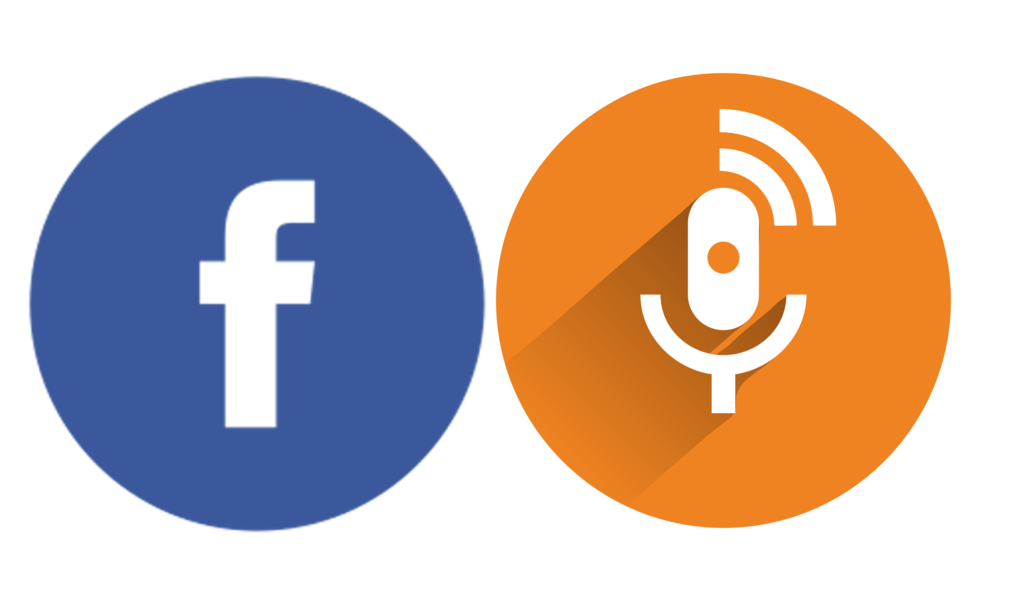 What could possibly go wrong?
What could possibly go wrong?
Here we are, just 12 months later, and reports are Facebook is moving other initiatives up the funnel, leaving podcasting behind. The story was originally reported by Ashley Carman in Bloomberg. Instead, Facebook is pivoting to short-form video projects (see the Quibi story), perhaps chasing TikTok and other platforms featuring snackable video.
Like all smart fails, Facebook – er…Meta – is playing the “bait and switch” game, downplaying podcasts, and moving into talking about video. Bloomberg notes Facebook sponsored Podcast Movement last August, but opted not to do so at their “Evolutions” event last month.
Everyone’s getting into podcasting, it seems. But even an empire as vast and successful just can’t force it’s way in.
CNN strikes out with subscription streaming – Even as it seemed like all brands have to do is put a plus (+) after their name, and collect the cash, think again.
CNN isn’t killing it in the Nielsen ratings, but opted to launch its video streaming platform late last month. The results have been nothing less than abysmal.
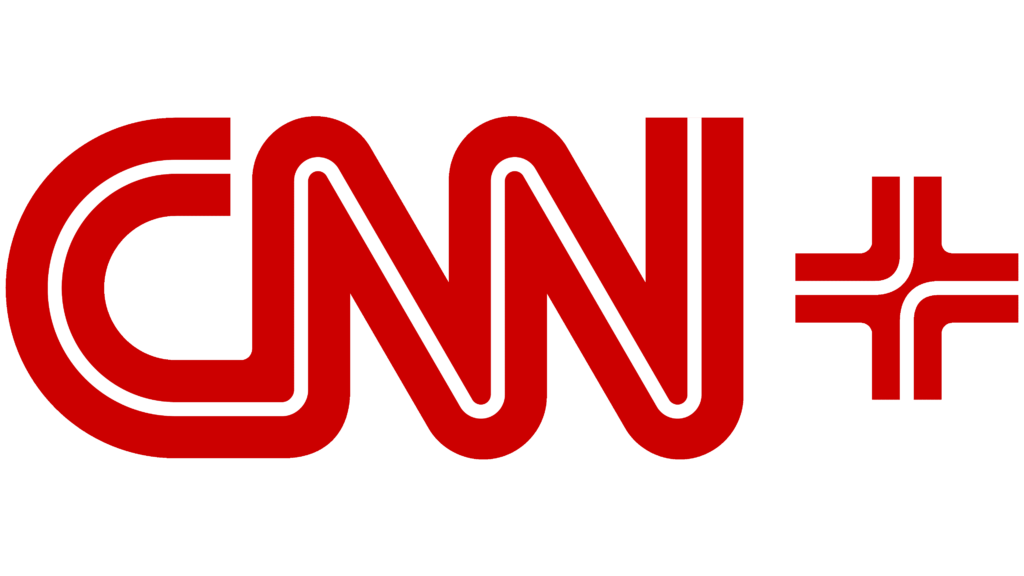 According to a CNBC report, less than 10,000 viewers are accessing CNN+ each day. That in spite of adding the talents of Kasie Hunt (NBC News), Chris Wallace (Fox News), and Audie Cornish (NPR).
According to a CNBC report, less than 10,000 viewers are accessing CNN+ each day. That in spite of adding the talents of Kasie Hunt (NBC News), Chris Wallace (Fox News), and Audie Cornish (NPR).
To put it in perspective, the CNN cable network was down last year, but managed to attract an average of 773,000 viewers a day.
Many of the radio stations we work with in PPM markets have daily cume audiences of 10,000 a day. Of course, they’re not charging $5.99 for the privilege of listening.
Unless there’s a quick turnaround, it’s becoming clear that just tacking on a + to a brand is no guarantee of success.
Not likely. Axios reported yesterday parent company Warner Bros. Discovery put the kibosh on all external marketing for CNN+. Even radio people know what that means.
Is CNN+ D.O.A? It’s too early to count them out, but it sure looks like a major facelift may be necessary soon.
Spotify’s live audio is a no-go – You’d think having a foothold in podcasting would be enough. But from the git-go, Spotify’s efforts to out-Clubhouse Clubhouse (which isn’t doing well) have been…well, clunky.
See if you can keep track of Techcrunch’s explanation of Spotify’s foray into this space: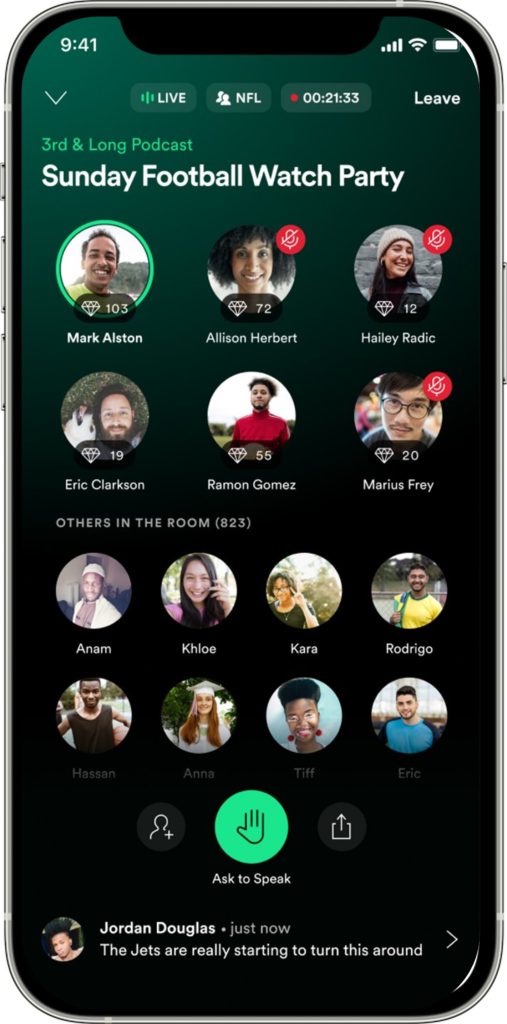
- Spotify acquired the app that became Greenroom 13 months ago for $62 million. It was originally Locker Room.
- Greenroom was launched last June, and the company started producing live weekly shows last fall.
- Spotify cut an audio content deal with Complex Networks.
- Greenroom tanked, attracting only 275,000 downloads globally in Apple’s App Store.
- Greenroom is history, now renamed as Spotify Live.
- And rather than have its own app, Spotify Live programming content (and there’s a lot of it) will only be available in the main Spotify app.
If Spotify is that bent on making live audio work, it might want to be a radio station…or 800 of them.
Failure is a part of the innovation process. New Amazon CEO, Andy Jassy, knows precisely how this works. In a recent letter to shareholders, he made this admission:
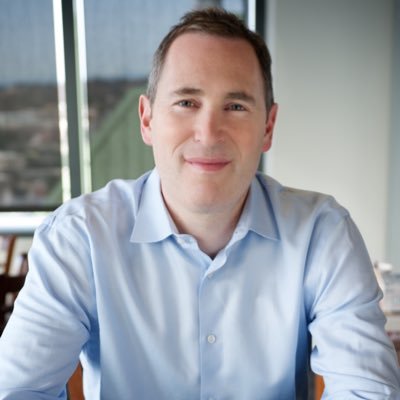
“If you invent a lot, you will fail more often than you wish. Nobody likes this part, but it comes with the territory.”
Every company mentioned in this post realizes failures, screw-ups, debacles, and even disasters are part of the innovation process.
Why is it so essential to keep pressing for “the new, new thing?” Because consumers won’t stand for the same old-same old.
Advertising icon David Ogilvy knew this implicitly. One of his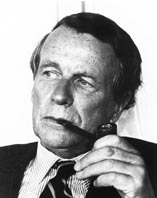 mottos:
mottos:
“You know you can’t bore people into buying your product. You can only interest them in buying it.”
For an incumbent platform like broadcast radio, that’s a saying we have to take to heart. We can no longer achieve profitability with a mundane, predictable product.
And in this environment, hitting singles and kicking field goals isn’t going to cut it. We need home runs and touchdowns – the more spectacular the better. “Baby steps” won’t move the needle, not in a media landscape where new brands are launching every week.
Sadly, even the names chosen for new products have become mundane, and yes, boring. This has been the case in radio for a long time now. In addition to the lack of great new formats, we have a shortage of attention-getting format names that signify something exciting is happening over the airwaves.
It’s not just in radio. Take the “+” frenzy, for example. With the exception of Peacock and HBO Max, so many streaming brands now carry the plus sign that it portends a channel with no imagination. What will stimulate you to plunk down $5 or $10 month on yet another video streaming platform – especially when the name delivers the message, “Oh yes, we have a video streaming channel, too.”
The only solution is innovation, albeit a process that comes with failure.
The good news is that most disasters – even the high-profile ones – are usually forgotten, especially when a brand turns around and does something amazing.
Few remember the guy who came up with New Coke, the Edsel, Google Glass, or the Apple Newton.
But I’ll bet we remember Jeffrey Katzenberg.
 Meantime, let me know what you think of our new launch (exciting new logo pictured), a spinoff of our existing consulting business.
Meantime, let me know what you think of our new launch (exciting new logo pictured), a spinoff of our existing consulting business.
I think it has potential.
A tip of the JacoBLOG hat to long-time reader Bob Ottaway.
- Media And Technology In 2025: Believe It Or Not! - April 18, 2025
- In Radio, You Just Never Know - April 17, 2025
- The Secret To Making A Great Podcast (And Great Radio) - April 16, 2025




Once upon a time, PDs got three strikes and you’re out. We lived from book to book, always striving for a new way up. Results were slower and just quarterly. You stayed on your toes and consistently sought ways to grow. Sameness and lack of new creativity/opportunity is deafening. Status quo was status No. High time for new services, new lists, new connections, new style, new sponsors. It’s all there. It’s all about taking advantage of all signals and opportunities to grab folks of all ages by the ears.
Good points all, Clark. Thanks for the comment.
Every radio manager should have a billboard in front of his desk with this phrase:
“We need home runs and touchdowns – the more spectacular the better.”
Thanks for the inspiration, Fred.
Maybe I should sell this to those “Successories” folks who create flowery posters with business sayings on them, Tito. Seriously, thanks for this.
Brilliant phrase, Tito. It seems that it wouldn’t hurt to have this in front of the CEOs as well. Then when budgeting for the future the ones in the front office can provide bats, balls, shoulder pads, helmets -whatever it takes to inspire those home runs ‘n touchdowns! Tom Brady didn’t become the GOAT with his bare hands.
This reminds me of one of our XM mantras. The “creative batting average” where if you have 100 ideas and 70 of them suck , you’re batting 300. All star numbers. Those 30 good ones erase the 70 bad ones. Similar to the Home run analogy. Sadly most stations/programmers are batting 000 because ideas stay in the dugout and never take swings
Lee, there’s a lot to admire about your career. But when I think back to all you’ve done, it was the biggest reach ideas that mattered and impacted the most. Thanks for this.
Thank you. At a time when FM radio is faced with unprecedented competition, you’d think stations would be on creative steroids instead of autopilot. I’m hoping you can continue to lead and hopefully drive radio into aggressively acting on the realities of 2022 and beyond.
It is so cool to see you commenting. I hope you do it more. It’s nice getting your take on things.
I give your new spinoff logo a 10 Fred. It’s incorporates inviting graphic devices that subtly encourages people to “Press Play” and get ‘More”. I see what you did there. Nice one.
I’m still laughing too hard at “Jacobs +” to be able to properly comment on this.
Okay, maybe I’m not laughing TOO hard. I think both you and Lee Abrams (and other commenters) made excellent points. In some ways we have indeed become risk adverse after two years of the pandemic, and in some ways a station having survived this can create a predilection towards complacency.
I will only warn that, going back a half-century, that KHJ’s downward spiral and demise was not in any way due to any deficiencies in Bill Drake’s programming skills, but rather from RKO management adopting the mindset that they would remain #1 forever and were untouchable.
“We survived because our audience knew we’d always be here, same as we always have” only works until a sense of normalcy kicks in with the listeners. Then they will expect you to start wowing them again … same as you always have.
I also think that surviving this created a sense among PDs that they don’t dare rock the boat very hard, else they end up in the lake without a life preserver. This is where the GMs need to step up and assure their programming team that it’s okay — even expected — to get creative again.
And yeah, Lee, a .300 batting average is pretty normal, isn’t it?
Appreciate this, KM. We need a new mindset. And I agree many of these commenters are spot-on. I’m swearing off that Hippocratic Oath!
For me, the only “Plus” branding that has ever really mattered was, yes, “Password Plus”: not just a funky logo, but layered/textured plus-signs all over the set. I guess Goodson-Todman just couldn’t trademark that concept. (I don’t know if it’s ever been confirmed, but game-show lore has long suggested that the title was inspired by a quip by Carol Burnett.)
Right now, Eric, it seems like the easy way out. And I wonder whether the use of “+” now, especially for media brands doesn’t just communicate “Us, too” rather than something you just have to listen to.
We took a huge swing 15 yrs ago at Q101/Chicago. I hosted a “Daily Show”-esque ensemble show called “The Morning Fix” to replace Mancow. Doomed from the jump, but huge credit to Emmis for putting the lie to “radio never tries anything new.”
I was peripherally part of that “experiment.” I agree, Alan. Huge props to the Emmis team for the effort. They did a lot of things that way – like starting a sports radio station in NYC. That one worked out pretty well. Good to hear from you.
I’m glad you mentioned Audie Cornish. While it was sad to see her leave NPR, the departure sparked a conversation they needed to have: how to keep diverse voices on the air when diversity is more important than ever.